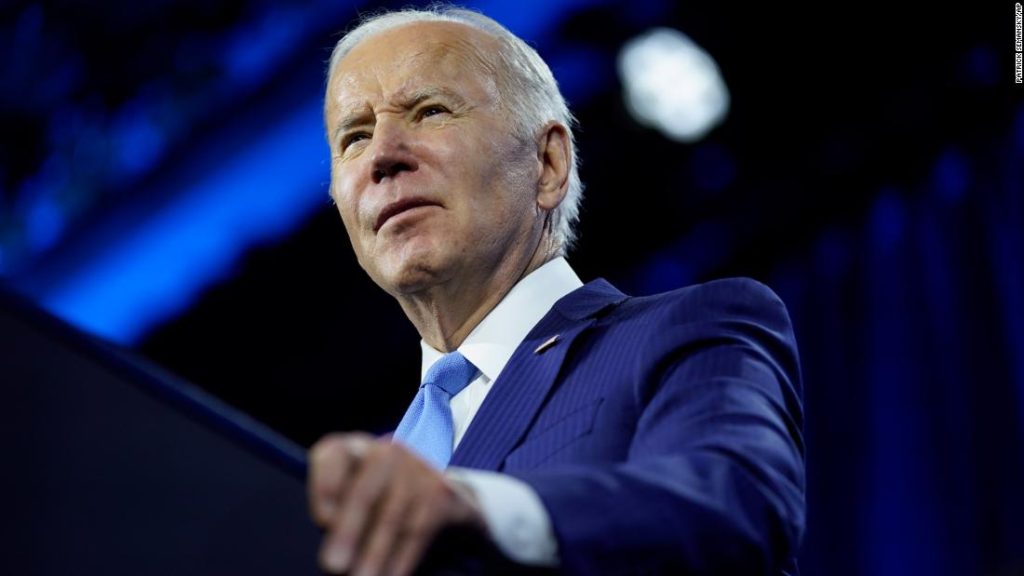According to a statement released on Tuesday by the Russian Foreign Ministry, the government is adding the following individuals to its “blacklist” to bar them from entering Russia: Biden, U.S. Secretary of State Anthony Blinken, Secretary of Defense Lloyd Austin, Chairman of the Joint Chiefs of Staff General Mark Milley, Biden’s National Adviser Jake Sullivan, CIA Director William Burns, White House Press Secretary Jen Psaki, Deputy National Security Adviser Duleep Singh, USAID Director Samantha Power, Deputy Treasury Secretary Adewale Adeyemo, and US Export Secretary. Rheth Import Bank President Joe Lewis.
The blacklist also includes other non-governmental individuals, including President’s son Hunter Biden and former US presidential candidate and former Secretary of State Hillary Clinton.
The move is largely symbolic, as members of the Biden administration are unlikely to travel to Russia anytime soon as the US and its allies set out to punish Putin and Russian elites for invading Ukraine. Biden and his administration have ruled out possible meetings with Putin and wonder if he is seriously interested in a diplomatic solution to the war.
The Foreign Ministry said the sanctions were in response to US-imposed sanctions in recent weeks that were part of a broader Western tactic to counter Russian military action in Ukraine.
The statement called the sanctions “an inevitable consequence of the extremely Russophobic course of the current US administration, which, in a desperate attempt to maintain American hegemony, has staked, discarding all decency, on the frontal compression of Russia.”
The Russian government has suggested that more sanctions will follow, and the blacklist is expected to be expanded to include “top US officials, military, legislators, businessmen, experts and members of the media who are Russophobe or contribute to hatred of Russia and the imposition of restrictive measures.” measures.”
The statement from the foreign ministry also says that the Russian government “does not refuse to maintain official relations if they meet our national interests, and if necessary, we will solve problems arising from the status of persons appearing on the” black list “. in order to organize contacts at a high level”.
White House press secretary Jen Psaki suggested the restrictions would not have much of an impact on the intended targets, telling reporters during a press briefing on Tuesday: “None of you will be surprised that none of us are planning tourist trips to Russia, none of we have bank accounts that we will not be able to access, so we will move forward.”
When asked by Psaki if the new sanctions signal an escalation from Russia, Psaki said the US is “confident” that US officials “will be able” to continue direct and indirect negotiations with Russia.
The sanctions, the Foreign Ministry said in a statement, were introduced in coordination with other decisions “to protect the Russian economy and ensure its sustainable development.” Meanwhile, Russia is signaling that it may soon default on its debt.
Half of the country’s foreign exchange reserves – some $315 billion – have been frozen due to Western sanctions following the invasion of Ukraine, Russian Finance Minister Anton Siluanov said Sunday. As a result, Moscow will pay creditors from “unfriendly countries” in rubles until sanctions are lifted, he said.
Credit rating agencies are likely to consider Russia in default if Moscow misses payments or repays debt issued in dollars or euros in other currencies such as the ruble or Chinese yuan. A default could force the few remaining foreign investors out of Russia and further isolate the country’s crumbling economy.
According to JPMorgan Chase, a default could come as early as Wednesday, when Moscow would need to hand over $117 million in interest payments on dollar-denominated government bonds.
Russia has also turned to China for economic and military assistance, which has stood aside during its invasion of Ukraine, according to CNN conversations with two U.S. officials. But it’s unclear whether China intends to help Russia, and both countries deny that Russia made the request.
Russia also announced on Tuesday that it was banning Canadian Prime Minister Justin Trudeau, Canadian Foreign Minister Melanie Joly and Canadian Defense Minister Anita Anand from entering the country, the Russian Foreign Ministry said on Twitter on Tuesday.
The Foreign Ministry announced restrictions on Canadian officials shortly after Ukrainian President Volodymyr Zelensky made a virtual speech to the Canadian Parliament.
Russia’s actions come against the backdrop of several new US sanctions against the leaders of Russia and its allies. According to the US Treasury Department, the US has imposed sanctions on Belarusian President Alexander Lukashenko, who allied with Russia in the war against Ukraine, as well as a number of other Russians, including a judge for human rights violations. In addition, the Biden administration targeted 11 Russian military leaders, some of whom were involved in the crackdown on Russian protests and dissent in the occupied territories of Ukraine.
In recent weeks, the US has imposed a series of sanctions against Russia, including against Putin, his inner circle, Russian oligarchs, Russia’s banking sector, and technology development.
Kylie Atwood of CNN, Charles Riley and Zachary B. Wolf contributed to this report.

